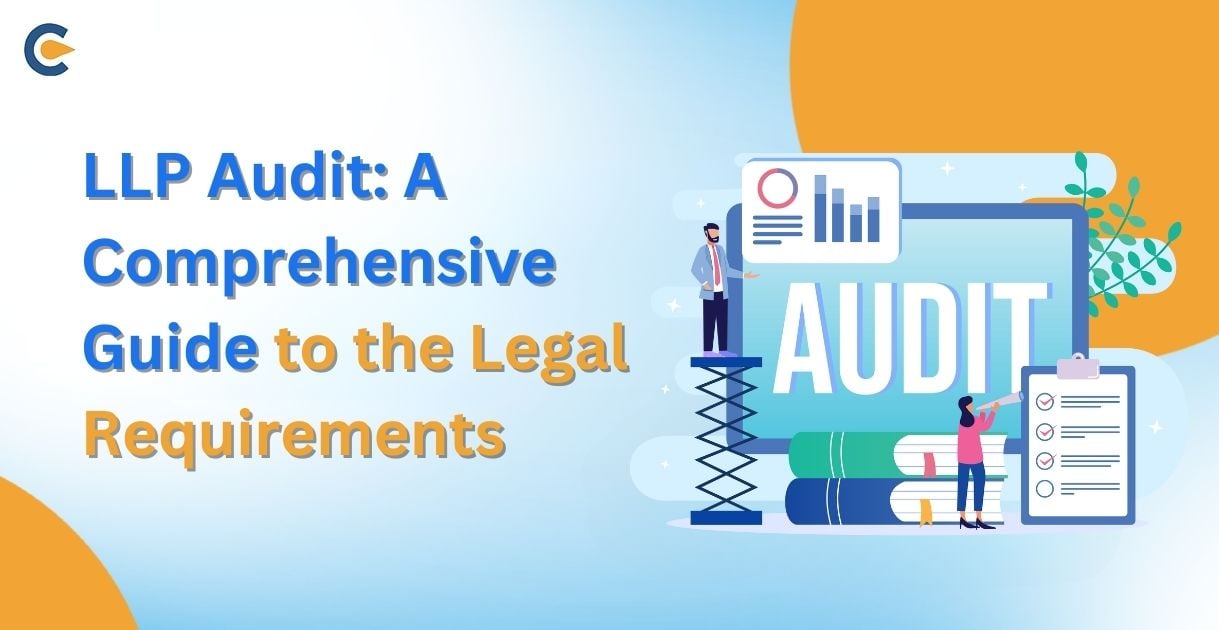A limited liability partnership (LLP) cannot be established without a borrowing clause unless all financial decisions are assigned to a single managing partner or manager. This is not always possible. Because it gives partners the authority to borrow money on the company’s behalf, the borrowing clause is also referred to as the cash-flow clause. It is possible for it to indicate that just one partner is authorised to borrow money from the firm, or it is also possible for it to state that all partners are permitted to do so. It is vital when creating a limited liability partnership (LLP), to designate who may sign loan agreements and whether or not the assent of the other partners is needed.
What is the ability of Partners to borrow money on behalf of the Firm?
The Partners have the ability to borrow money on behalf of the firm if the Borrowing Provision is followed
The agreement for the Limited Liability Partnership (LLP) includes a borrowing clause, which is sometimes referred to as a cash-flow clause. This clause gives the partners the authority to borrow money on the firm’s behalf. It is vital since it makes financing easier and makes it possible to take on debt if that turns out to be required. When you’re just getting started as an entrepreneur, you don’t have a lot of money, managing your cash flow may be difficult. This is especially true when it comes to paying costs and purchasing goods. Consequently, the flexibility of this kind is really necessary!
In an LLP, the earnings and losses of the firm are typically shared among the partners
In most cases, a limited liability partnership (LLP) will have two or more partners who will share both the firm’s earnings and losses. In the event that one partner engages in dishonest behaviour like as theft or fraud, the other partners have a responsibility to recompense the victim(s).
Partnerships may be created by people who want to start a company together or by businesses that want to extend their activities without changing their legal structure. For instance, an existing corporation might incorporate an LLP. Partnerships may also be created by people who desire to start their own companies
The Borrowing Clause allows for either of them to reinvest
If you are experiencing difficulties in the development of your company, this may be of assistance to you. One of the primary motivations for formation of partnerships among so many people is the desire to facilitate one another’s financial success.
According to the Borrowing Clause, only one partner may borrow money for the business, or all partners may provide their approval
If the partnership agreement includes a clause pertaining to borrowing, it may specify that only one partner is licenced to borrow money on the firm’s behalf, or that all partners must offer their approval before any borrowing is authorised. Alternatively, it may state that all partners must grant their assent before any borrowing is permitted. If there isn’t currently a clause like this in your contract, you should create one if there isn’t already one. This clause should restrict the partners who are allowed to sign loan paperwork and need their consent before doing so.
- In addition to this, the amount and kind of collateral (such real estate), if any, that is needed for a company loan must be indicated.
- In addition to this, it should explain who is entitled to sign loan agreements and whether or not those persons need the consent of other colleagues.
- In the clause pertaining to borrowing, it needs to be mentioned who is authorised to sign loan papers and whether or not they require the approval of the other partners.
- In addition, the partnership agreement should include a provision that states, in the event that one of the partners passes away while the firm is still active, the whole of that partner’s interest in the enterprise will be passed to the estate of the deceased partner.
Individual Partners in an LLP Have No Liability for Business Obligations
In a limited liability partnership (LLP) and members of the partnership do not take on personal responsibility for the partnership’s obligations. In other words and regardless of whether you have personal duties or those that your company incurs outside of your Limited Liability Partnership (such as paying off your mortgage), you will be responsible for handling them as an individual rather than as a member of a partnership. This is true whether you have personal responsibilities or those that your business incurs outside of your Limited Liability Partnership.
When forming a limited liability partnership (LLP), is it necessary to incorporate a “Borrowing Clause”?
A limited liability partnership (LLP) cannot be established without a borrowing clause unless all financial decisions are assigned to a single managing partner or manager. This is not always possible. If the firm has a borrowing clause in its contract, they may be able to acquire a loan without having to pay back any interest throughout the course of the term.
If the LLP (representing the shareholders), management, and officers (representing those who have consented to serve in executive roles), all concur with one another, then the clause will be put into force. As an instance, you may say something along the lines of “all members agree that they are responsible for repaying funds when due.”
To ensure that your assets are safeguarded, the operational agreement for your LLP should have a funding clause
In the event that you, your company partners get into financial problems, the borrowing clause might act as an important and beneficial legal shield for you and your partners. It also helps to keep creditors at bay by ensuring that debts are paid prior to the seizure of assets in the event that bankruptcy is filed for. This prevents creditors from taking action against the debtor. Every limited liability partnership (LLP) need to contain a borrowing clause because, in the absence of one, the company and its members are vulnerable to creditors who could try to confiscate assets (such as bank accounts) if they are not repaid on time.
Is it possible for the other partners to go after the borrower if they find out that one of the partners has taken out a loan without their knowledge?
It is possible for the other partners to take action if one of them borrows money without the other partners’ approval or knowledge. If your business partner takes out a loan without your knowledge or consent, you have the legal right to file a lawsuit against them for breaking this clause, which is mandated by both the law and the company policy (which may differ depending on who is in control of the firm). You have this right since the law and company policy demands it. If there are no existing obligations at the time of death or bankruptcy, it is probable that any residual cash will be handed to heirs rather than creditors. This is the case whether there are no outstanding debts at the time of death or bankruptcy.
Analysis of the Legislation governing The Borrowing Clause in an LLP Agreement
When it comes to loans and other types of legal issues, the Limited Liability Partnership Act is the primary piece of legislation that controls LLPs. And it is regulated by various other statutes such as: The Banning of Unregulated Deposit Schemes Ordinance and 2019 & The Banning of Unregulated Deposit Schemes, Act, 2019.
- The Limited Liability Partnership Act:
- There is a lack of clarity in the Limited Liability Partnership Act on the question of whether or not LLPs are allowed to accept deposits or loans. Nonetheless, one must take into account the stipulations that are listed below. Regarding a transaction involving the limited liability partnership, a partner has the same rights and obligations as a non-partner, as stated in section 66 of the LLP Act. This includes loans given to the limited liability partnership as well as other types of transactions.
- The rules and regulations that are created by this Act must be additional to the rules and regulations that are established by any other legislation that is already in force, and they must not be in conflict with the rules and regulations that are established by any other legislation. This is stated in Section 71 of the LLP Act.
- The Central Government is granted permission under Section 67 of the Companies Act to issue a notice in the Official Gazette on the applicability of any provision of the Act to LLP. This notice must state whether or not the provision in question applies to LLP.
- The LLP Act of 2008 and the LLP Rules of 2009 do not have a provision for registering the charges, in contrast to the Companies Act of 2013, which does contain such a provision. On the other hand, yearly reports produced by a limited liability partnership (LLP) might be either annual or interim, as indicated by form LLP 8. A declaration from the designated partners that the creation, modification, or satisfaction of a charge has been submitted until the end of the current fiscal year is also needed to be included in Part A (statement of solvency) of Form 8. As a result, LLP is qualified to submit an application for a secured loan. The information included in Form No. 8 can only lead to the uncovering of the truth. Form No. 8 interim has to be submitted by an LLP that has secured a loan in order for there to be a charge generated. (it is important to point out that the statement of solvency includes the following sentence: “We have already filed a statement indicating the formation, modification, or satisfaction of charges until the end of the current fiscal year.
- The LLP Act, the Companies Act[1], and the Insolvency and Bankruptcy Code, 2016, do not have a definition of the word “SOLVENCY” in their respective statutes.
- The Banning Of Unregulated Deposit Schemes Ordinance, 2019 And The Banning Of Unregulated Deposit Schemes Act Of 2019 (Also Known As The Buds Act):
The BUDS Act applies to all different kinds of persons, such as families, groups, organisations, businesses, and limited liability partnerships (LLP). According to Section 2, a deposit that does not fall under column 3, schedule I, it is considered an unregulated deposit plan. The First Schedule of the BUDS Act details the various kinds of approved regulated deposit schemes as well as the regulatory bodies that are empowered to oversee them. Please refer to Section 2 for a definition of “regulator” as well as a definition of “regulated deposit scheme.” In the first schedule, there is no mention of either the regulatory body that oversees the LLP or any of the approved regulated deposit schemes. As a result, it is fair to assume that an LLP is able to accept loans and deposits. As a direct consequence of this, the BUDS Act is fraught with a considerable lot of uncertainty with respect to LLP. It is against the law for deposit collectors to engage in advertising or solicitation of deposits, as stated in Section 3 of the BUDS Act.
3. As a direct consequence of this fact, neither the LLP Act nor the Companies Act nor the BUDS Act include any provisions regulating the receipt of loans or deposits by LLP.
5. Neither the LLP Act nor the Companies Act nor the BUDS Act include any requirements pertaining to the acceptance of loans or deposits by an LLP.
Sample of How a Borrowing Clause Would Read Like
- The Limited Liability Partnership (LLP) may borrow any amount of money from any bank, financial institution, non-bank financial company (NBFC), or other person at the interest rate that was in effect at the time the loan was taken out. This must be done with the approval of the Designated Partners. In the event that it is deemed essential, the parties may choose to provide security for the Borrowing, which may be secured or unsecured.
- Each participant is free to make whatever further arrangements they think are necessary, including making a contribution to the LLP’s operational capital. Any partner in the Limited Liability Partnership who has the same rights and obligations as any other person has the power to lend money to the Partnership or participate in any other kind of commercial transaction with the Partnership.
- Interest at a rate of 12 percent each year: Interest calculated using the lesser or higher rate stipulated by Section 40(b)(iv) of the Income Tax Act, whichever is relevant for the Limited Liability Partnership Firm’s Income Tax Assessment for the applicable accounting period, if any such assessment was made. The aforementioned interest rate may be adjusted upwards or downwards at the discretion of either party. In the case of losses, lower earnings, a difficult financial condition, or growth or other pressing demands of the LLP’s business, Partners may agree by mutual agreement to waive or reduce the rate of interest due to them on their capital and Loan Accounts.
Conclusion
The funding clause in your LLP agreement is an essential component in ensuring safety of your property. Make sure that it includes all of the information that is required to be in accordance with the requirements of the state. It is possible that your attorney may be able to recommend an alternate clause that is compatible with the conditions you want to put in the contract while still sticking to the limitations that you have set up. The stipulations of a loan might contain provisions for winding down the firm, finance, non-competition, accounting, and other topics; nevertheless, these provisions would not be complete. When establishing an agreement for a limited liability partnership (LLP), various terms should be kept in mind.
Read our Article:What Is Amendment In LLP Agreement: Rights And Duties Of Partners











